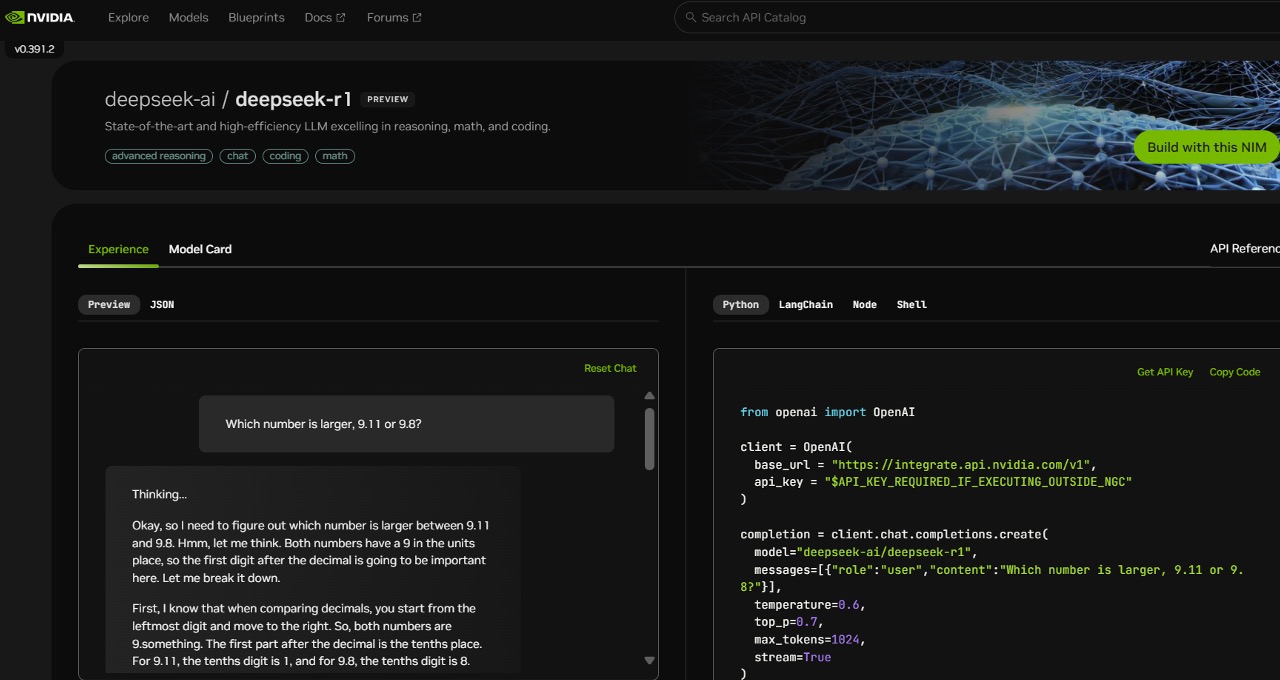AI going DeepSeek | MR Online
Most readers will know the news by now. DeepSeek, a Chinese AI company, released an AI model called R1 that is comparable in ability to the best models from companies such as OpenAI, Anthropic and Meta, but was trained at a radically lower cost and using less than state-of-the-art GPU chips. DeepSeek also made public enough of the details of the model that others can run it on their own computers without charge.
DeepSeek is a torpedo that has hit the Magnificent Seven U.S. hi-tech companies below the water line. DeepSeek did not use the latest and best Nvidia’s chips and software; it did not require huge spending on training its AI model unlike its American rivals; and it offers just as many useful applications.

Revolutionary Approach
DeepSeek built its R1 with Nvidia’s older, slower chips, which U.S. sanctions had allowed to be exported to China. The U.S. government and the tech titans thought they had a monopoly in AI development because of the huge costs involved in making better chips and AI models. But now DeepSeek’s R1 suggests that companies with less money can soon operate competitive AI models. R1 can be used on a shoestring budget and with much less computing power.

Moreover, R1 is just as good as rivals at ‘inference’, the AI jargon for when users question the model and get answers. And it runs on servers for all sorts of companies so that they need not ‘rent’ at huge prices from the likes of OpenAI.
Most important, DeepSeek’s R1 is ‘open source’, namely that its coding and training methods are open to all to copy and develop. This is a real blow to the ‘proprietary’ secrets that OpenAI or Google’s Gemini lock away in a ‘black box’ in order to maximize profits.
Implications for U.S. Companies
The big issue for the U.S. AI companies and their investors is that building huge data centers to house multiples of expensive chips may not be necessary to achieve successful outcomes. Up to now, the U.S. companies have been ratcheting up huge spending plans and trying to raise mega amounts of funding to do so.

Investors are concerned that this spending is unnecessary and that it will hit the profitability of the American companies if DeepSeek can deliver AI applications at a tenth of the cost.
So has DeepSeek punctured the massive stock market bubble in U.S. tech stocks? Billionaire investor Ray Dalio thinks so. He told the Financial Times that “pricing has got to levels which are high at the same time as there’s an interest rate risk, and that combination could prick the bubble … Where we are in the cycle right now is very similar to where we were between 1998 or 1999,” Dalio said.
Environmental Concerns
As the tech industry expands, there are also growing concerns about the environmental impact. Training AI models consumes significant amounts of electricity, leading to increased energy production and greenhouse gas emissions.
Water consumption is also a significant issue, with AI companies requiring large amounts of water to ‘cool’ their mega data centers to protect the chip. This has implications for regions facing droughts and wildfires.
The Race for AGI
Despite these challenges, AI companies continue to push for the development of more advanced chips and data centers. The race towards achieving Artificial Generalized Intelligence (AGI) poses both opportunities and threats.
While some see AGI as a potential threat to humanity, others view it as the next frontier in AI development. The competition to achieve AGI raises questions about the control and implications of superintelligent AI.
As the tech industry evolves, it is essential to consider the broader impacts on the environment, society, and the future of AI development.










